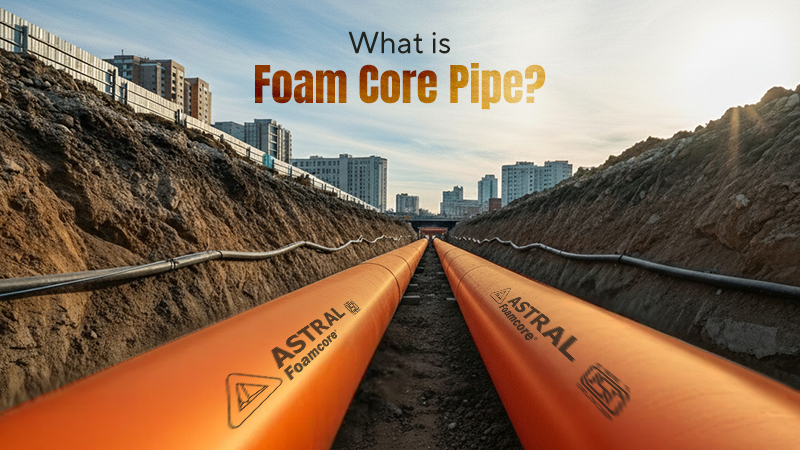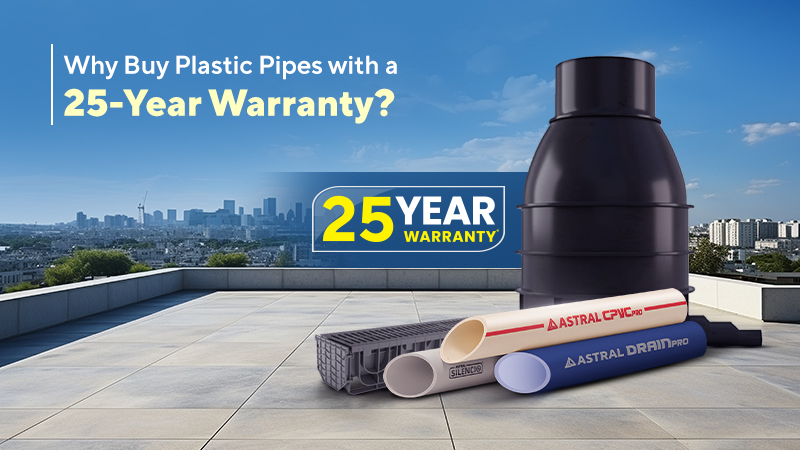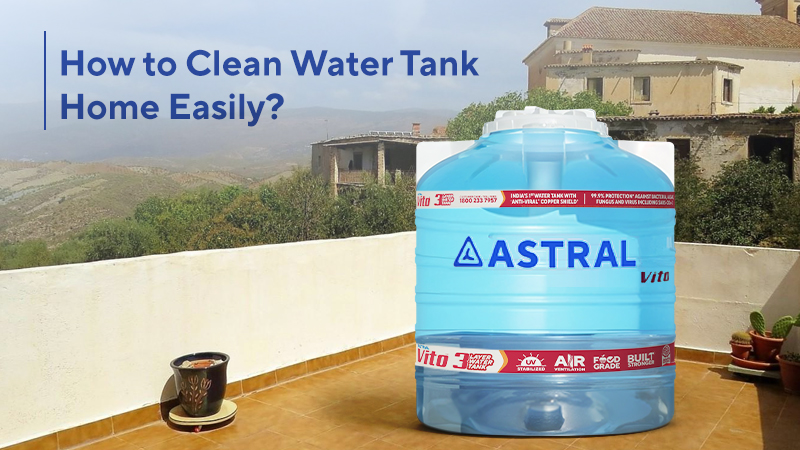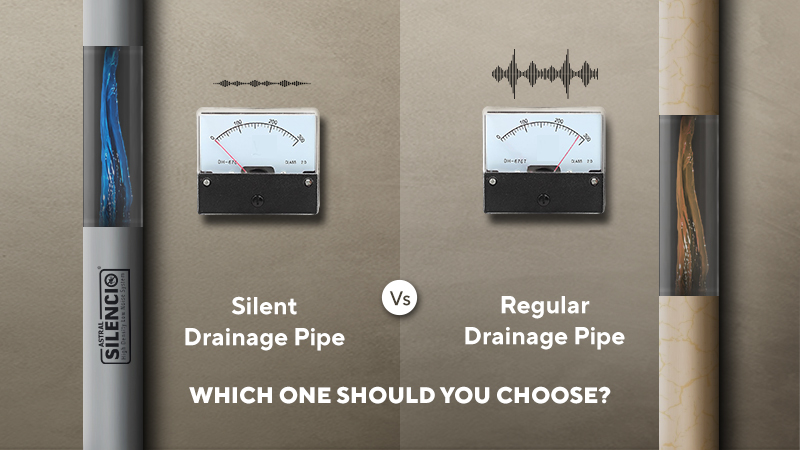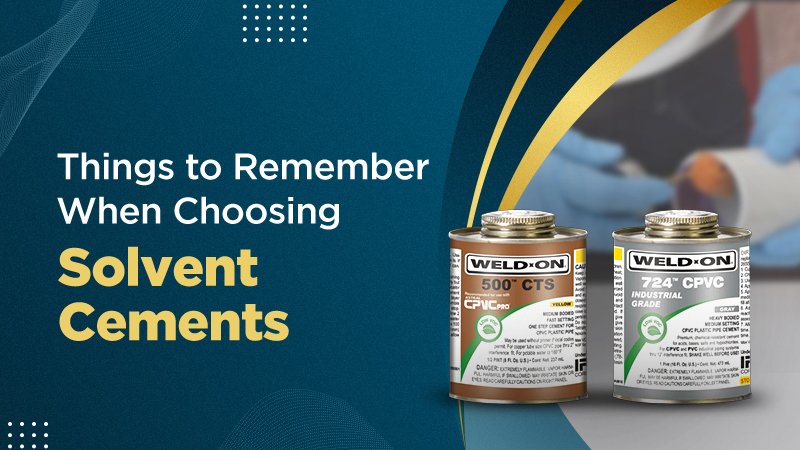
20 Jul 2024
Things to Remember When Choosing Solvent Cements
A robust plumbing system requires more than selecting top-grade pipes and fittings. The plumbing fixtures must be joined using a compatible solvent cements to form a strong, reliable system. If the pipe material and the solvent cement are not compatible, it will not bond the pipe fittings properly, resulting in a weak, loose joint.
When it comes to solvent cement, there are many kinds available in the market, and each type offers some unique characteristics and benefits. Whether you are a professional expert or getting ready to repair leaky pipes at home, this comprehensive guide will help you choose the right solvent cement for your project.
Choosing the Best Solvent Cement for Leak-free Joints
Key Considerations for Choosing the Best Solvent Cement for Leak-free Joints
1. Pipe Compatibility
The first and foremost consideration is the type of pipe material. Solvent cements are specifically formulated for PVC and CPVC pipes and fittings.
PVC solvent cement: Commonly known as pipe glue, Polyvinyl Chloride or PVC solvent cement is designed for joining PVC pipes and fittings. Unlike normal glue, the solvent chemically fuses the exterior material of the pipes and the fittings at the molecular level. The chemical reaction joins the surfaces in a few minutes, creating a strong and permanent bond.
CPVC solvent cement: CPVC solvent cement is an amalgamation of CPVC resin, stabilisers, and fillers dissolved in a chemical solvent. Designed to bond CPVC pipes and fittings together, this type of solvent cement also chemically fuses the materials to create a durable and lasting bond.
2. Chemical Efficiency and Downstream Considerations
The bonding process’s effectiveness depends on the chemical properties of the solvent. Efficiency is not only about the speed of the reaction. It also concerns downstream considerations such as:
Isolation: How easily can the solvent be removed after use? This is important for preventing contamination of the final product in certain applications.
Work–up: Is the solvent readily removed by distillation or other methods? This will affect the cost and practicality of the overall process.
3. Industrial Constraints
Industrial processes often impose specific constraints on the choice of solvents. These factors include:
Boiling Point: The temperature at which a solvent boils. This affects distillation processes and the ease of solvent removal.
Freezing Temperature: The temperature at which a solvent freezes. This is important for storage and transportation, especially in cold climates.
Density: The mass of a solvent per unit volume. This affects how the solvent flows and is handled.
Recoverability/Recyclability: The ability to recover and reuse the solvent after use. This can significantly reduce costs and environmental impact.
4. Human Health Issues
Direct exposure to solvents can have various health effects. It’s crucial to evaluate the acute, long-term, and single-target organ toxicity, which poses great health risks, before choosing a solvent cement for your project.
5. Quality
For critical applications, like pharmaceutical manufacturing, solvent quality is paramount. Impurities in the solvent can contaminate the final product and compromise its efficacy and safety. Choosing solvents with high purity is critical to ensure minimal risk of contamination.
6. Cost
The cost of solvent cement is an important consideration, especially for large-scale projects. While the initial cost may seem like a primary factor, remember to factor in the overall cost of ownership. Including purchase price, storage costs, and disposal costs.
Compliance with Legislation
Regulations, such as REACH (Registration, Evaluation, Authorization, and Restriction of Chemicals), are impacting the use of certain hazardous solvents. It’s essential to choose solvent cements that comply with all applicable regulations.
For most applications, you can use Astral’s Weld-On range of solvent cement for leak-free plumbing. This specialised range offers premium quality PVC solvent cement, CPVC solvent cement, and primers for joining plastic pipes and fittings. With the most expansive range of offerings, Weld-On has adhesive solutions for various applications.
Weld-On solvent cement is an industrial-grade, low-VOC solution for joining PVC and CPVC pipes and fittings, and is certified by NSF and ISI. They come in three body weights—heavy, medium, and regular, to cater to diverse project requirements. Offering fast-setting, high-strength bonds, these are compatible with all classes and schedules of pipes, making them a versatile choice for various applications.
Take a comprehensive approach by considering all relevant factors to select the ideal solvent cement for your job. And just like that, the right solvent cement will be the safest and most sustainable solution for achieving optimal results.
Read our blog on The Advantages of CPVC Solvent Cement for Joining Pipes and Fittings


